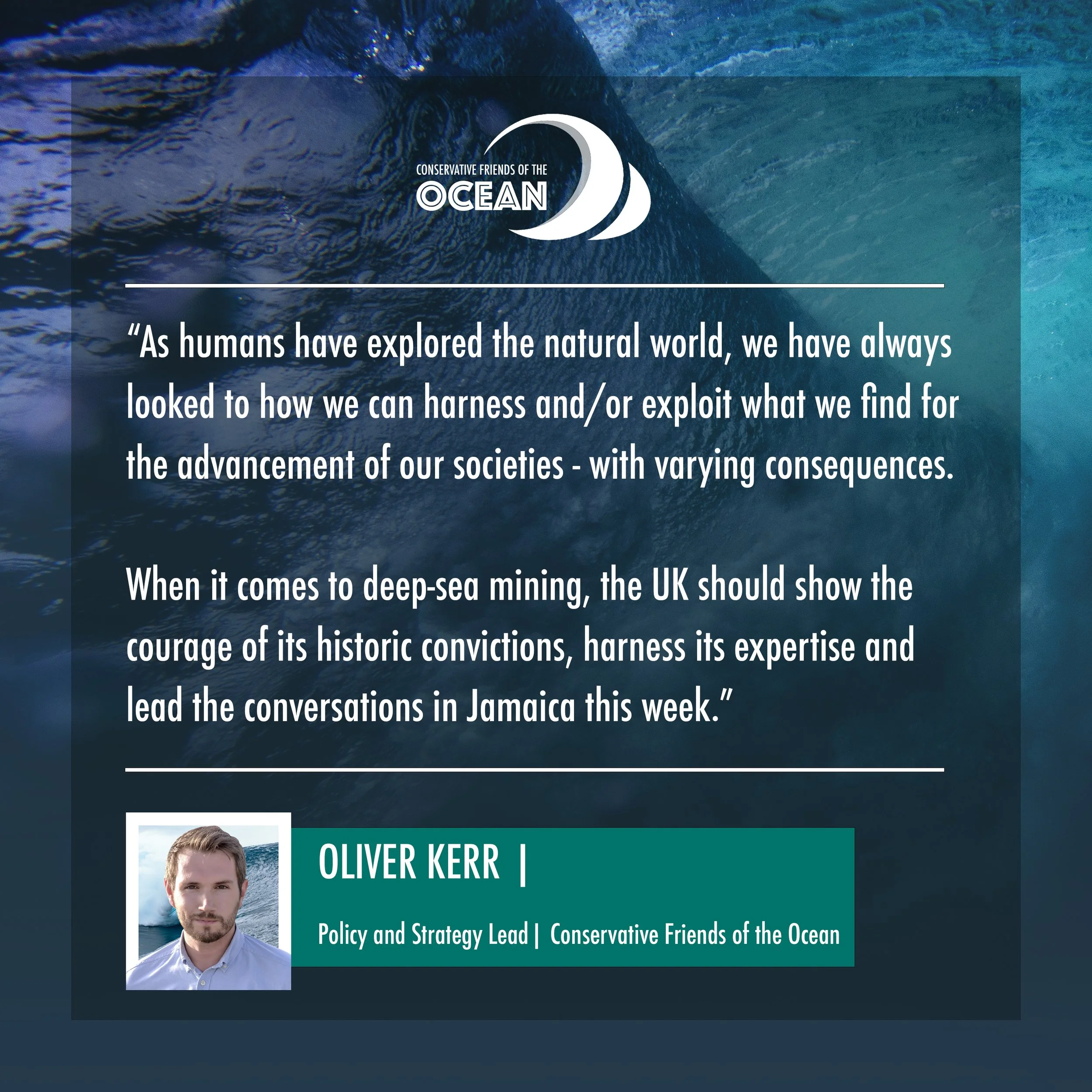Is a deep-sea “gold rush” really worth the possible consequences?
It was once said that we know more about the surface of the moon than we do about the deep-sea ocean floor. How true that is is up for debate, however it is certainly the case that the deep-sea remains one of the least explored regions on our planet.
With increasing numbers of surveys being carried out with submersibles and Remote Operated Vehicles (ROVs) by governments, research institutes and the private sector, we are starting to build a better picture of “what’s down there”.
The UK Government famously launched its own “Boaty McBoatface” autonomous underwater vehicle (AUV), which now regularly explores depths of up to 4,000m in the Southern Ocean collecting marine data that helps us understand the impact of climate change on our atmosphere.
Last year, the United States National Oceanic and Atmospheric Administration's (NOAA) six-month “Voyage to the Ridge 2022” explored the Atlantic Ocean's Mid-Atlantic Ridge, as well as other areas in the Caribbean, with an ROV down to between 250 to 6,000m deep. They discovered 20 new species never seen before, including a living “blue goo” that had biologists stumped.
These pioneering missions are shining a light (literally) on the makeup of our deep sea and the fascinating life that calls it home. But, with discovery comes the realisation of what resources are down there, both biological and geological.
As humans have explored the natural world we have always looked to how we can harness and/or exploit what we find for the advancement of our societies - with varying consequences.
The deep sea has become the new frontier where our fascination for discovery has opened a pandora's box of both exciting opportunity and inevitable destruction.
Deep-sea research is vital. Expeditions have found ocean life that has the potential to transform medicine, with NOAA saying, “Systematic searches for new drugs have shown that marine invertebrates produce more antibiotic, anti-cancer, and anti-inflammatory substances than any group of terrestrial organisms”.
It is increasingly well known that lying on the sea floor and locked in the seabed are rare-earth minerals and metals, like cobalt, tellurium and manganese, that modern society is becoming ever more reliant on to create batteries, solar panels and other technologies of the future.
These minerals are also becoming more scarce on land and controlled by only a handful of countries, including China, so the allure of developing deep-sea mining operations, in a modern-day gold rush, is becoming irresistible in some quarters. But at what cost?
The International Seabed Authority (ISA), has the power to govern mining activities in the deep sea and has so far only signed off exploration contracts with 22 companies since the ISA was founded in 1994. At present, no commercial licences have been issued.
And this is where the big question comes in – should commercial licences be issued at all?
This week ISA nation-states meet in Kingston, Jamaica to discuss the future of sea-bed mining. Ahead of the meeting environmental charities and NGOs across the world have come out calling for a moratorium of all deep-sea mining activities; citing irreversible damage to the ocean through the destruction of this delicate ecosystem and wiping out possible, as yet undiscovered biological resources that could be sustainably harnessed.
And some countries are listening, with 16 states declaring a position. From Palau, Switzerland and New Zealand agreeing to a moratorium, and Germany, Ireland and Chile asking for a precautionary pause on exploration until we know more about the environmental impact of the emerging industry.
Only France has so far called for an outright ban on the sidelines of the UN Ocean conference in Lisbon last year, despite being one of the countries sponsoring a contract for exploration.
On the other side, the Norwegian government recently announced plans to open parts of the Norwegian Continental Shelf for commercial seabed mineral activity. Saying “We need minerals to succeed in the green transition….no other country is better positioned to take the lead in managing such resources sustainably and responsibly.”
And this argument will resonate with governments across the globe, causing a dilemma for many facing the same issue and wanting to advance their drive for new tech.
Can these minerals truly be mined sustainably and responsibly?
The UK is yet to take a formal position at the ISA, but broadly finds itself in the same boat as those asking for a “precautionary pause” without being explicit about it, with the government saying it has agreed “not to support the issuing of any exploitation licences for deep-sea mining projects unless or until there is sufficient evidence about the potential impact on deep-sea ecosystems.”
This comes off the back of an independent evidence review commissioned by HM Government into the potential risks and benefits of deep-sea mining, carried out by the British Geological Survey, the National Oceanography Centre and Heriot-Watt University.
It, however, found that any mining will disturb sediments possibly inundating delicate habitats and organisms. There would also be significant noise generated by machinery, in a place used to near silence, which would have unknown impacts on fish and mammal species which rely on sound for navigation and hunting. Not exactly, sustainable or responsible.
But again, the rewards of securing our future supply chains are invaluable – and frankly, China and Russia are geared up and ready to dive if given the green light. So why shouldn’t we properly regulate? Given countries are likely to do it regardless.
Since the days of the coalition, Conservative UK Governments have increasingly been at the forefront of international marine conservation efforts. Driving the agenda on issues like major marine protected areas and the recent High Seas Treaty, tackling marine plastics and IUU fisheries and being a leading voice at the Convention of Biodiversity and of course COP26, with positive political consequences. Gaining deserved favour in the public eye, often pleasantly surprised by a Conservative government that wants to do what it says on the tin and conserve.
When it comes to deep-sea mining, our approach shouldn’t be any different. The UK should show the courage of its historic convictions, harness its expertise and lead the conversations in Jamaica this week.
Where we have done this in the past, such as with the Antarctic Treaty of 1959, we helped bring the world together to designate our great southern continent a sanctuary for research, science and nature. We could do the same for the deep sea.
Encourage exploration, fund research, harness nature-based solutions and develop a deep-blue economy that leaves no trace and avoids ripping apart the sea-bed.
This is the approach that is there in the depths ready to grasp, and the UK should be willing to dive in and pick up the mantel before we fall into the abyss of likely irreversible harm of a world, we still know so little about.


